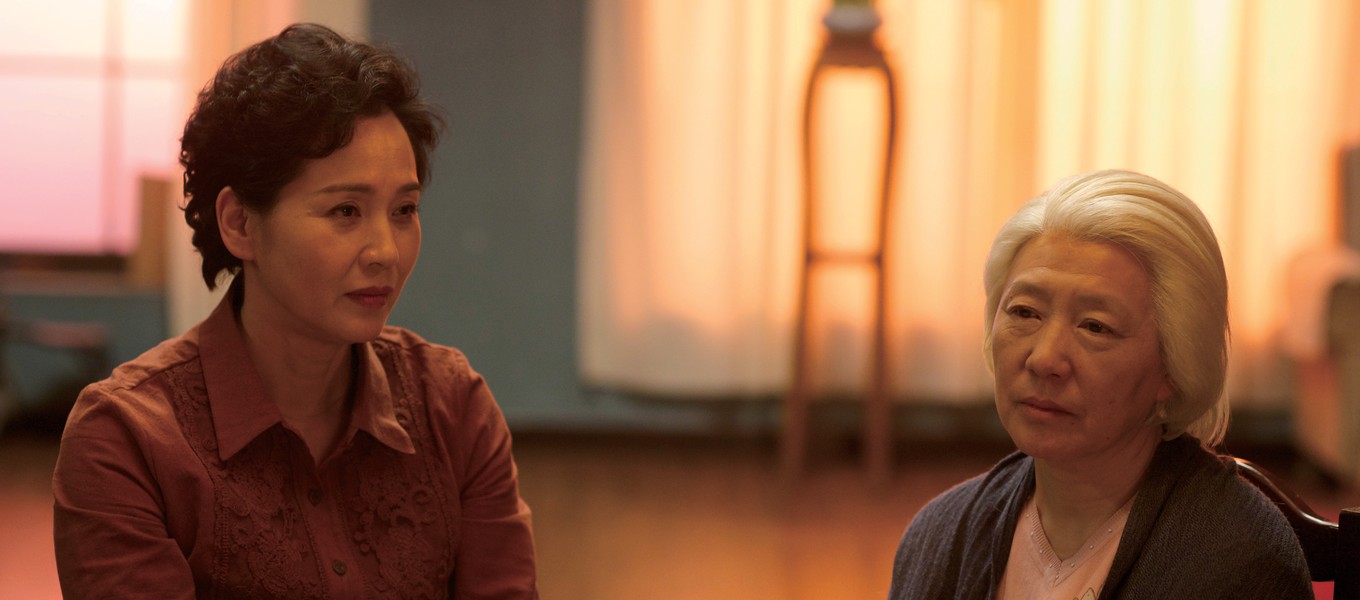Chao Liang
Chaque fois qu’on se dit au revoir - Film - 37min - 2015
présenté dans le cadre de l'exposition Panorama 17 - Techniquement douce



Film
A film cannot fear immobility, it can only dread immobilisation. This is the ultimate menace: uncontrollable fixity, insidious paralysis. If this paralysis wins, then “death is no longer at work,” to borrow one of Cocteau’s ideas.
It withdraws, disappears from the field, abandons what has been and makes desolate even the desire to return. Having fled, it defilms time and nothing – no machinery, no fiction, no artifice – will have the power to reassemble it. It is the end of any credit sequence.
Chao anticipates, slowly, with the precaution of an angel knowing that everything is fragile and that all he can bring to the last existing actions, to words that are spoken without drawing a dwelling, is the strength of his gaze.
An old woman is about to die (maybe). She will never stop dying.The film silently follows her path. Nothing can disillusion or even make her despair (all pain becomes latent, a murmur or lassitude of the eyelids, an ageless movement behind the immobility returned to appearances, to the appearances that striate its epiphanies like fine rays of light that the hand does not pick up).
Chao has returned from a long journey to watch over this strange “au revoir” and accompany its drift, as precise in the time of which it is the calculation as a word of love forever understood. An old world where all dawns rise, safeguarding this time of infinite patience: young at all times, old every second.
Daniel Dobbels (3 mai 2015)
Chao Liang was born in 1985 in Tianjin, China. He studied sculpture and photography from 2004 to 2008 at the Tianjin Academy of Fine Arts. In 2008, Chao presented a solo exhibition at Agnès.b Gallery in Hong Kong. From 2010 to 2013, he continued his photographic training in Eric Poitevin's studio at École Nationale Supérieure des Beaux-Arts de Paris. Since 2014, Chao has re-orientated his artistic research towards screenplay writing and filmmaking at Le Fresnoy - Studio national des arts contemporains. Regardless of the medium, death, memory, experience and separation are key issues in all of his work.














